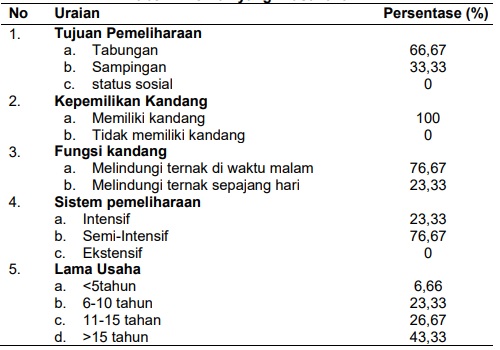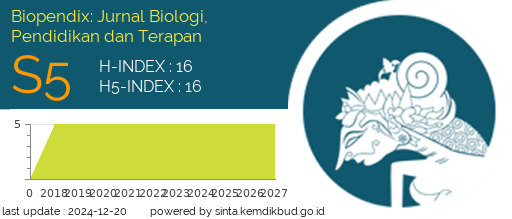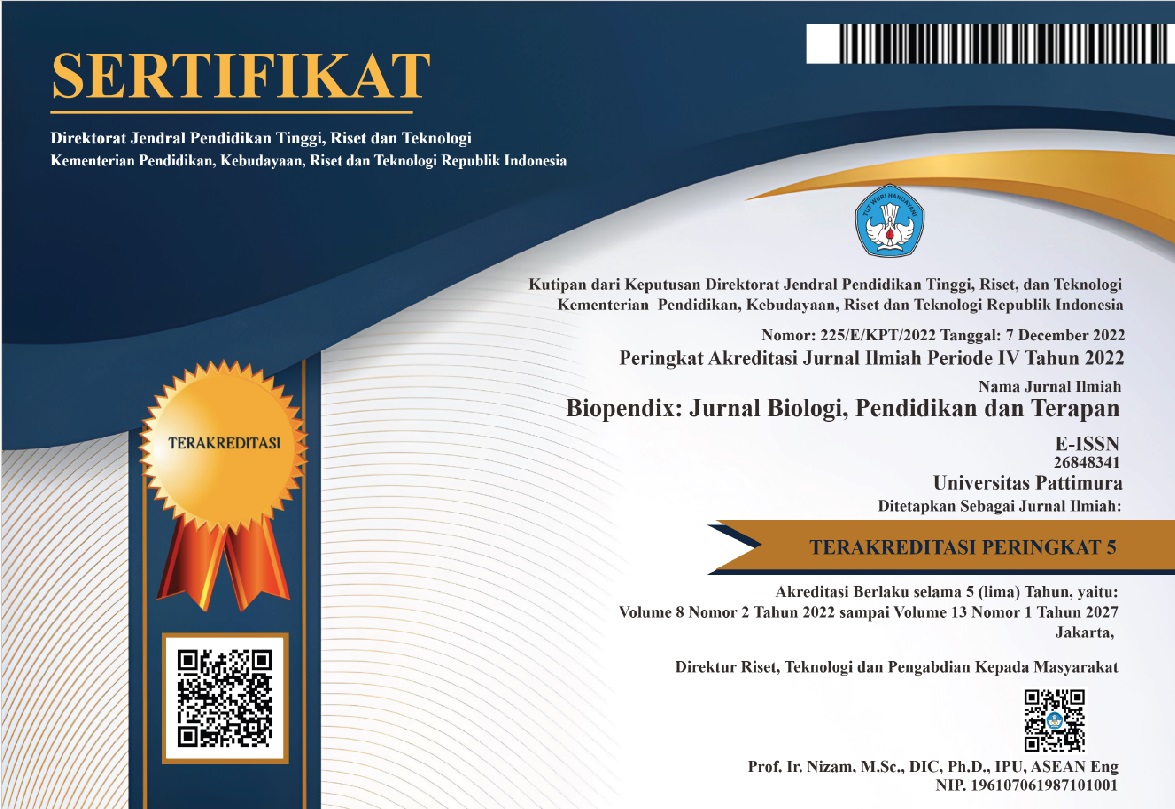PEMANFAATAN LIMBAH PERTANIAN TANAMAN PANGAN SEBAGAI PAKAN TERNAK RUMINANSIA DI KECAMATAN WAELATA KABUPATEN BURU
Abstract
Background: This study aims to determine the types of agricultural waste, the use of waste as ruminant
feed, and the knowledge of farmers regarding agricultural waste processing.
Methods: This research was conducted using survey methods and direct observation in the field. The
sampling technique was carried out by purposive sampling, namely three villages (Parbulu, Debowae, and
Waelo) based on the highest number of farmers and 30 farmers.
Results: This study shows the purpose of raising livestock as a saving 66.67% and the rest as a side
business 33.33%. Forage that was given grass and agricultural waste was 76.67% and grass was 23.33%.
Utilization of food crop agricultural waste as ruminant animal feed is still low at 23.33%, which provides
rice straw agricultural waste in the form of hay as an additional feed and there are 76.67% (23 respondents)
who do not know and apply feed processing technology from agricultural waste.
Conclusion: The use of agricultural waste of food crops as feed for ruminants in Waelata District, Buru
Regency is still very low. This is due to the low level of knowledge and the application of feed processing
technology from agricultural waste by farmers/breeders.
Downloads

Authors who publish with this Journal agree to the following terms:
- Author retain copyright and grant the journal right of first publication with the work simultaneously licensed under a creative commons attribution license that allow others to share the work within an acknowledgement of the work’s authorship and initial publication of this journal.
- Authors are able to enter into separate, additional contractual arrangement for the non-exclusive distribution of the journal’s published version of the work (e.g. acknowledgement of its initial publication in this journal).
- Authors are permitted and encouraged to post their work online (e.g. in institutional repositories or on their websites) prior to and during the submission process, as it can lead to productive exchanges, as well as earlier and greater citation of published works




 2
2






